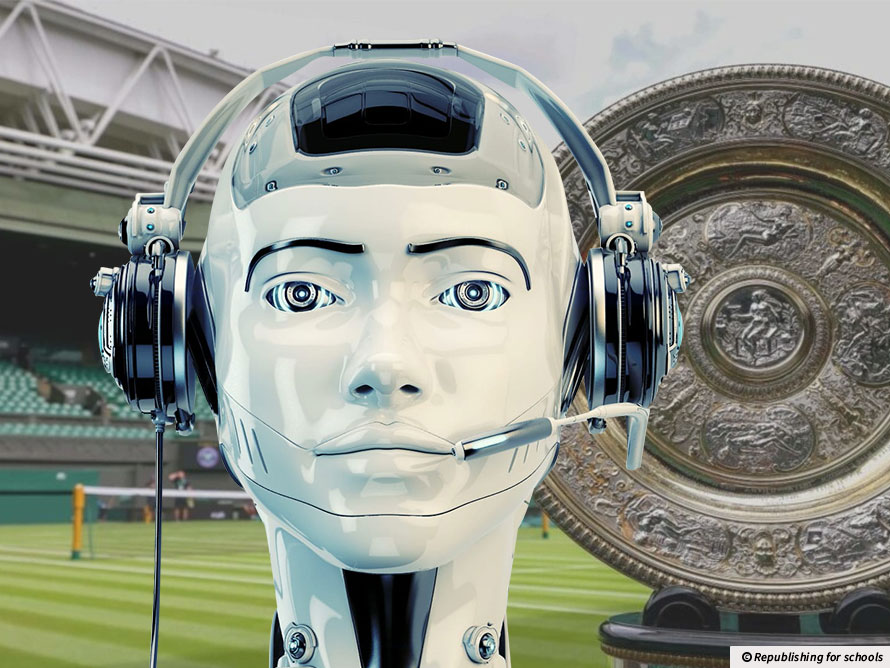But is Artificial Intelligence a threat to itself? As a computer is set to commentate on next month’s tennis, experts warn chatbots may poison themselves on a diet of fake news.
Meet the new host of Wimbledon: an AI bot
 Match point: Less than a year after ChatGPT was released, an AI bot can commentate on tennis.
Match point: Less than a year after ChatGPT was released, an AI bot can commentate on tennis. Glossary
Centre Court - The main court at a tennis centre, especially Wimbledon in London.
Wimbledon - An international tennis tournament held in London every year.
Biases - Beliefs that systematically and unfairly distort a person's decisions, in favour or against one group or another.
Fabrication - Things that are made-up.
